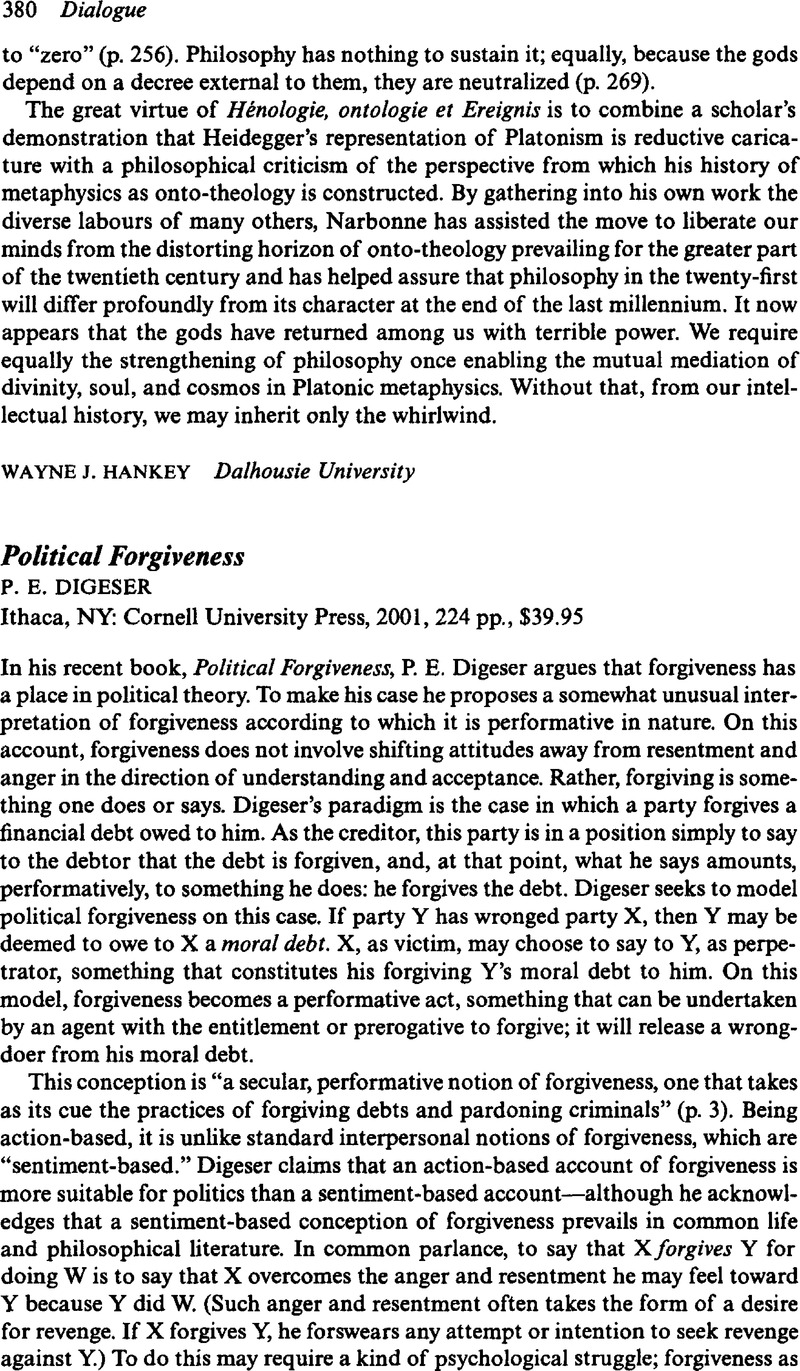No CrossRef data available.
Published online by Cambridge University Press: 13 April 2010

1 Butler, Joseph, The Whole Works of Joseph Butler (London: William Legg, 1847)Google Scholar; Downie, R. S., “Forgiveness,” Philosophical Quarterly, 15 (1965): 128–34CrossRefGoogle Scholar; Haber, Joram Graf, Forgiveness (Lanham, MD: Rowman and Littlefield, 1991)Google Scholar; and Murphy, Jeffrie and Hampton, Jean, Forgiveness and Mercy (New York: Cambridge University Press, 1988)CrossRefGoogle Scholar.
2 I have argued for this approach in my Social Trust and Human Communities ([Kingston and Montreal: McGill-Queen's University Press, 1997], chap. 9)Google Scholar; Forgiveness and Revenge ([London: Routledge, 2002], chap. 5)Google Scholar; and in Govier, Trudy and Verwoerd, Wilhelm, “Trust and the Problem of National Reconciliation,” Philosophy of the Social Sciences, 32 (2002): 178–205.CrossRefGoogle Scholar
3 Argued in my Forgiveness and Revenge, chaps. 3, 6, and 7.
4 The source cited is Kateb, George, The Inner Ocean: Individualism and Democratic Culture (Ithaca, NY: Cornell University Press, 1992).Google Scholar
5 A framework presented in my “Forgiveness and the Unforgivable” (American Philosophical Quarterly, 36 [1999]: 59–75)Google Scholar, as acknowledged by Digeser.
6 Introduced in my “Forgiveness and the Unforgivable.”
7 My own response to this problem may be found in a co-authored paper: Govier, Trudy and Verwoerd, Wilhelm, “Forgiveness: The Victim's Prerogative,” South African Journal of Philosophy, 21 (2002): 97–111.CrossRefGoogle Scholar
8 Moore, Kathleen Dean, Pardons: Justice, Mercy and the Public Interest (New York: Oxford University Press, 1989).Google Scholar
9 Discussed in Govier, Trudy and Verwoerd, Wilhelm, “The Promise and Pitfalls of Apology” (Journal of Social Philosophy, 33 [2002]: 67–82) and “Taking Wrongs Seriously: A Qualified Defence of Public Apology” (Saskatchewan Law Review, 65 [2002]: 139–62).CrossRefGoogle Scholar